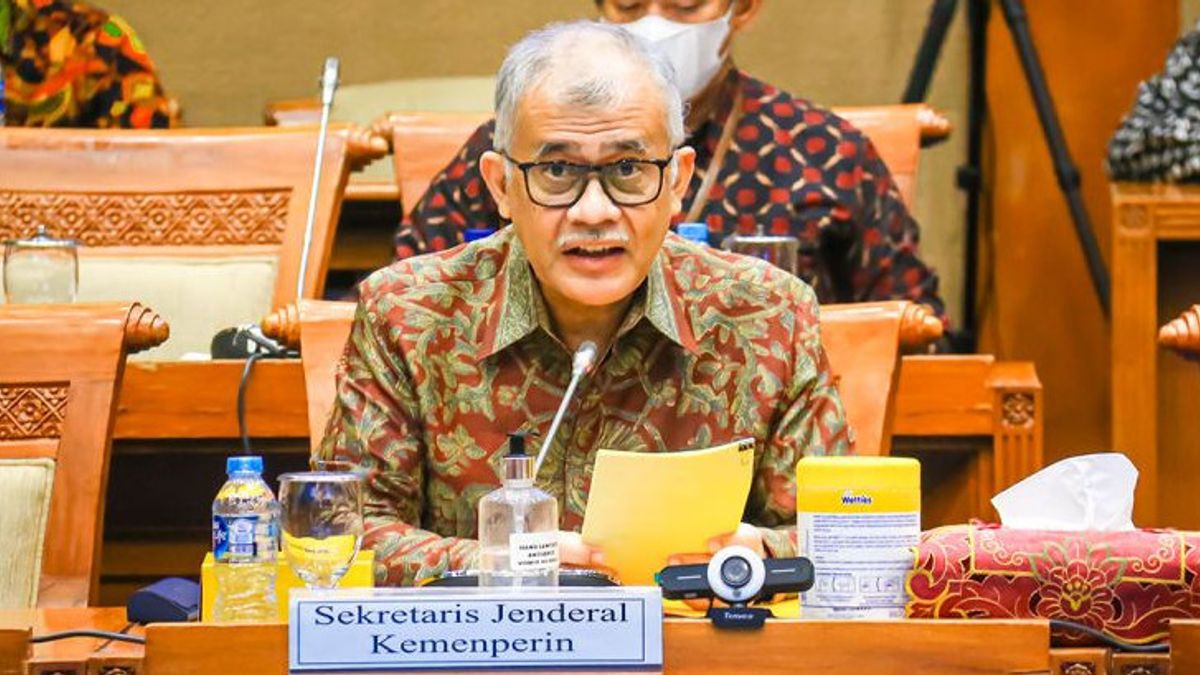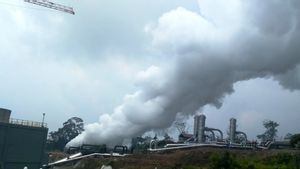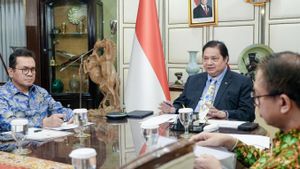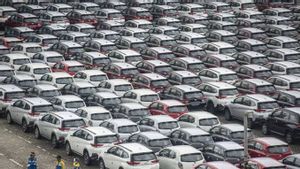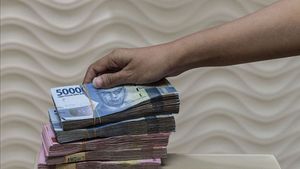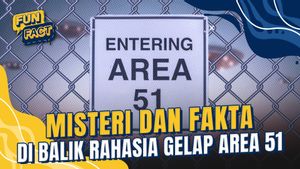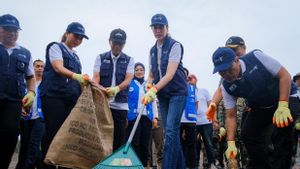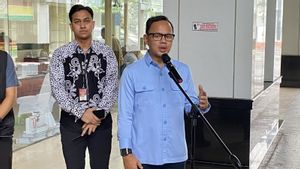JAKARTA - The Ministry of Industry has initiated an innovation in processing cow blood waste into liquid fertilizer carried out by the Padang Chemical Analyst Middle School (SMK-SMAK Padang), which is one of the vocational schools owned by the Ministry of Industry.
The innovation for processing cow's blood waste has been carried out by SMK-SMAK Padang since 2012, the background is that cow's blood has not been processed by the Slaughterhouse (RPH), so it becomes waste.
"Therefore, Padang Vocational Schools are challenged to answer these problems, so POC Darsa Rupawan was born and is currently patented with the number: IDP000046551," said Secretary General of the Ministry of Industry Dody Widodo in a statement, quoted by Antara, Monday 27 June.
The school with the competence in chemical analysis has succeeded in processing cow blood waste into liquid fertilizer.
The innovation, named POC Darsa Rupawan (Organic Liquid Fertilizer for Slaughterhouse Cow's Blood) was successfully included in the Top 99 Public Service Innovation Competitions of the Ministry of Empowerment of State Apparatus and Bureaucratic Reform of the Republic of Indonesia (Kemenpan-RB).
Dody conveyed the background of the creation of this innovation because in 2012, SMK-SMAK Padang students living near slaughterhouses (RPH) were worried about the impact of cow blood waste on the surrounding community. The reason is, if the RPH waste is allowed to flow into the river, it will have a bad impact on the surrounding community.
In the short term, it will cause an unpleasant odor around the RPH, and the river water flowing with RPH waste becomes cloudy. In the medium term, it can have an impact on the health of the people living around the abattoir, such as being prone to respiratory and skin diseases.
Meanwhile, in the long term, cow blood waste in rivers can lead to a decrease in oxygen levels in river water so that the river water ecosystem is disrupted.
In West Sumatra, there are 10 Slaughterhouses (RPH) which are supervised by the local animal husbandry and animal health service.
Every single RPH every day slaughters as many as 12 cows. Thus, a total of 120 cows are slaughtered every day, producing 720 liters to 960 liters of cow blood waste per day.
Based on the field survey, seven out of 10 abattoirs did not have procedures for managing post-slaughter cow blood waste, so many people were disturbed by the smell of sewage and polluted river water.
"Through integrated analysis II learning, SMK-SMAK Padang students and supervisors collaborate to make innovations by processing the waste into liquid organic fertilizer. Based on the test results, POC Darsa Rupawan can be used for rice, fruits, vegetables, secondary crops, and crops ornamental," explained Dody.
The birth of Darsa Rupawan's POC innovation is expected to be able to provide a solution to the problem of cow blood waste, by reducing the waste and increasing its benefits for the environment.
In addition, it can also help farmers to fertilize agricultural land at a more affordable cost, thus saving the government's fertilizer subsidy costs.
"For comparison, currently the total price of fertilizer subsidies per one hectare is IDR 1.5 million. With the fertilizer we use, we can save around IDR 796 thousand, because the total production cost per hectare of liquid fertilizer is IDR 744 thousand for 240 liters of POC Darsa Rupawan," said Dody.
The Secretary General of the Ministry of Industry estimates that the use of liquid fertilizer as a result of this innovation can save fertilizer subsidies of up to Rp. 1.4 trillion.
The Secretary General of the Ministry of Industry hopes that the efforts made by Padang Vocational Schools can be duplicated throughout the country, so that the RPH waste problem in various regions can be resolved with this innovation.
The Ministry of Industry targets that socialization efforts to handle RPH waste with Darsa Rupawan's POC innovation will not only be carried out in the West Sumatra area, but throughout Indonesia.
"This innovation will be very useful if we can develop it because it can reduce the use of subsidized fertilizers and is expected to increase agricultural yields using Darsa Rupawan POC fertilizer.
Currently, socialization and duplication have only been carried out in the West Sumatra area. In 2019, Padang SMKs entered into an MoU with the City Government and the Padang City Agriculture Office to provide training on processing cow blood waste into POC.
"Initially, there was socialization to Lubuk Buaya and Aia Pacah Padang RPH officers. After that, Padang SMAK SMK also provided training to farmer groups, PKK, and Karang Taruna in Padang City such as Limau Manis, Piai Tangah, Tarantang, and Ampang Villages," explained Dody.
Then in 2021, Padang Vocational High Schools entered into an MoU with the Department of Animal Husbandry and Animal Health of West Sumatra Province.
A total of 24 RPH officers in the West Sumatra region have received training in making this fertilizer. Several RPHs have then made the fertilizer, such as the RPH in Padang, Bukittinggi, Payakumbuh, and Batusangkar.
The English, Chinese, Japanese, Arabic, and French versions are automatically generated by the AI. So there may still be inaccuracies in translating, please always see Indonesian as our main language. (system supported by DigitalSiber.id)
